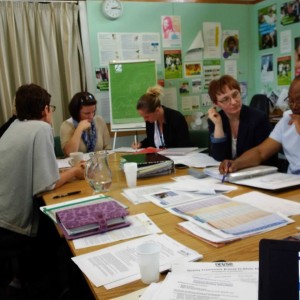Four Manchester City Council officers have completed their training to becoming Quality Assurance Mentors and join the existing three mentors.
Manchester hosts a great many supplementary schools, and has worked with many of them over the years to support safe and effective delivery, improving teaching skills, celebrate and promote the impact supplementary schools are having on the educational achievement of children and young people in the city.
We very much look forward to seeing more Manchester supplementary schools join those with with current NRCSE quality assurance.

For information about the city’s supplementary schools, visit the Multilingual Manchester website.
Manchester is characterised by a great variety of cultures and ethnicities. It is a city of over 150 languages, and approximately 40% of its youth are thought to be multilingual. Every year, there are around 1500 newly arrived children of school age from about 70 countries of origin. Some of the largest community languages spoken in the city are Urdu, Cantonese, Arabic, Polish, Panjabi and Bengali (MLM 2013b:1).Apart from global languages like Spanish and Portuguese or national languages like Farsi (Persian), there is a noteworthy presence of speakers of regional and minority languages such as Yoruba, Hausa and Hakka Chinese. For a detailed report on Manchester’s language profile and language provisions, see Multilingual Manchester: A Digest (MLM 2013b); the Multilingual Manchester School Language Survey (MLM 2013a) offers information on community language skills identified in four primary schools of the city.

Leave a Reply
You must be logged in to post a comment.